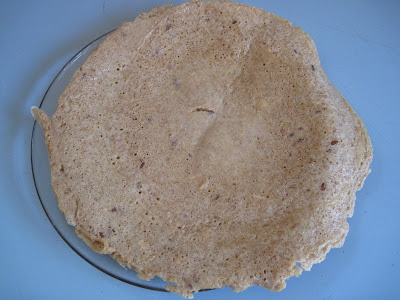The Fall that Follows Triptych
How Gerald Studies the Fledging of Darkness, May 14, 1993
I. The Fall that Follows
Pigeons fall past the window, twisting and expanding
like newspapers unwadding in the wind. Gerald puzzles
over this, lying on his side staring up and out. He realizes
that they plunge from nests in the eaves and do not open
their wings to fly until below his line of sight.
Though his visitors all praise the view from his window,
all he sees from the bed is sky and a haze of smog
so thick and brown he can't tell if the sun
shines or not. The window, too, is smudged with grease
and condensation—his breath and sweat, he guesses—
and droplets trace long winding zebra paths through the fog.
His view of the pigeons is divided in stripes
of clarity and veils. Appropriate, that view,
he thinks, his hours striped by pain.
Today, he learned
that while his past has been growing
steadily longer, his future has shrunk to barely the blink
of an eye. "Six weeks, maybe," the doctor said,
when he, half joking, inquired, "How long have I got, Doc?"
With no future, no space remains to enjoy the past.
He holds the morphine button in the crook of his elbow
as the pain grows toward a crescendo. He dissociates
for a moment, watching the flame of pain expand
spread like a wildfire. It is red and orange and yellow
and smells like gasoline and turpentine
and like the pine pitch in the trees he climbed
as a boy. Sticky, like that, too, never letting go.
The pigeons flutter upward, back
across the window,
beating their wings wildly
near the top. He watches
for the fall that follows, after perhaps
they feed their young. When
he presses the morphine button,
he will fall like that, tumbling
through a morphine darkness
away from himself,
but there will be no wings, no
bread from the feet of the elderly
for his children,
only the long scrabble
back toward the light
before he has to call in desperation
for the darkness yet again.
II. A Fluid Ribbon
Wings beat at the window,
feathers graze the glass. Up
and up they flutter. Grandpa's eyes rise
to the pigeons, for a moment, unglazed.
Then the happy cooing, like a cat, purring,
like a lullaby. A smile quivers
on Grandpa's lips before he fades again.
When he sleeps, Al crosses the room,
sits on the wide windowsill and watches
Gerald's chest rise and fall with only
an occasional catch. The view outside
falls away into the distant valley
and ascends to a series of ridges beyond, fades
to blue and disappears into the lambent sky.
Al turns his back on the rolling hills
and looks up to where the pigeons gather,
on a ledge above the window.
Their droppings streak and coat the upper glass,
the wall beside it, and the ground below.
Above the whitewash, colors! Iridescence!
Oranges, pinks, blues and greens glow and shimmer
on the greys, tans, black and white of feathers.
A plethora of variation. They babble and dance
on the ledge. Then as though if on signal,
they dive from the ledge and flow through the air
like a ribbon of fluid, twisting and turning
in unison as if choreographed by his own heart.
Below, heading in from the drop-off loop, Geraldine
follows their flight with her whole body,
her arms rising and falling slightly,
as if she would join them. "Bring bread,"
Gerald had said, "and seeds."
Al did. Enough for all of them.
III. It Hurts a Little
At the first grip of toes and prick of tiny talons,
Geraldine shrieks, and in a clatter of wings, the pigeons
fly. "Shhh," whispers Aldy, inclining his head
toward Gerald in the wheelchair, wrapped in a blanket
and scarf. "Shhh. Your Dad wants to feed them."
Geraldine arranges the torn bread and seeds
on her hand again, steels herself. The same pigeon
returns, the white one with tan wings and shiny pink
glow on it's head as if a coat of thin nail polish
had been painted on every feather. First the whirr
and beat of wings, the sudden clutch of pink toes
with their sharp nails. Then a pecking at the seeds
in her hand. Though it hurts a little, Geraldine
sits utterly still on the bench beside her father's wheelchair.
Then giggles, softly. The pigeon looks up, cocks its head
to the side and peers at her through a single eye.
Geraldine stares back at the pigeon with an eye
of her own. The pigeon turns its head and looks at her
with the other eye and Geraldine does the same.
When the pigeon returns to eating bread and seeds,
Geraldine laughs. She can't help it. The pigeon
flutters slightly, but stays. Peck. Peck peck.
Geraldine looks around. Aldy has a pigeon, too,
a grey and white one with pink and green shine on its wings.
Three black pigeons with blue shiny heads like ravens
balance on her father's bony knees, one on the right,
and two sharing seeds from his left hand. In his eyes,
a faint smile flickers. Geraldine smiles, too.
Mary Taitt
for jrlc and mjtc with love and longing
![]() this line ^ and everything below the line are not part of this poem
this line ^ and everything below the line are not part of this poem
090220-1941-1f; 090220-0203-1st combined draft
earlier separate pieces: The Fall that Follows:(090217-1300-2a; 090216-1239-1st
Ode to the Nursing home pigeons: 090217-1520-1b; 090217-1411-1st
It hurts a little: 090220-1:412-1st complete draft; 090218 partial draft)
Note to Dawn and Classmates: this started out as an ode to the pigeons in the voice of Aldy, second person, and morphed into something very different (as you can see and hear), but since it did actually start as an ode, I decided to bring it anyway.





